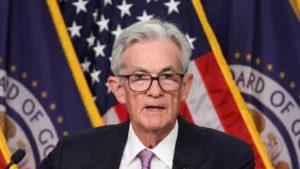
The recent North Korea missile launch has set off alarms across the international community as North Korea test-launched a long-range missile amidst rising tensions with the United States. This launch marks a new phase of escalation, with U.S. officials expressing deep concern over North Korea’s potential involvement alongside Russia in the Ukraine conflict. As diplomatic strains increase, questions arise about North Korea’s motivations and the potential repercussions on global security.
Background on North Korea’s Missile Program
North Korea’s missile program has long been a point of tension in East Asia, especially as Pyongyang continues to defy international sanctions by advancing its capabilities. The recent missile launch is just one in a series of developments that underscore North Korea’s determination to expand its military prowess, showcasing weapons with greater range and payload capacity. North Korea’s leader, Kim Jong-un, has consistently emphasized the need to bolster national defense, framing these missile tests as necessary deterrents against perceived threats from the U.S. and its allies.
The growing frequency of these missile launches illustrates North Korea’s commitment to building an arsenal that can not only reach regional targets like South Korea and Japan but also potentially strike the U.S. mainland. This latest missile test, conducted amid reports of North Korean assistance to Russian forces, raises concerns that Pyongyang may use its military assets to support Russia’s ongoing war efforts in Ukraine.
U.S. Response to the North Korea Missile Launch
The Biden administration has responded to the North Korea missile launch with strong condemnation, urging North Korea to adhere to international norms and halt its missile development. U.S. officials, including Secretary of State Antony Blinken, have called the launch a direct threat to regional stability and have reinforced the U.S. commitment to defend its allies in the Asia-Pacific region, including South Korea and Japan.
The United States, along with its allies, is considering increasing sanctions on North Korea as a deterrence measure, though the effectiveness of such sanctions has been limited due to North Korea’s isolated economy and its close relationship with China. Additionally, diplomatic efforts to engage North Korea in discussions about its nuclear program have repeatedly stalled, particularly as North Korea shows little interest in disarmament.
Potential North Korean Involvement in Ukraine
Reports from U.S. intelligence suggest that North Korea may be aligning with Russia by providing military support in the form of weapons and personnel to aid Russian forces in Ukraine. This development would mark a significant escalation in the international conflict, potentially drawing North Korea into the European theater of war—a rare move for the typically isolated nation. Analysts believe this alliance could be motivated by North Korea’s desire to strengthen ties with Russia as a counterbalance to U.S.-led sanctions and isolation.
For North Korea, aligning with Russia offers strategic benefits. Russia has been one of the few countries willing to engage with North Korea diplomatically, despite international condemnation of North Korea’s nuclear program. In exchange for military assistance, North Korea might seek economic aid, oil, or technology transfers from Russia, bolstering its own capabilities while maintaining a staunch anti-U.S. stance.
How the North Korea Missile Launch Impacts Regional Security
The North Korea missile launch has intensified security concerns throughout East Asia, especially for Japan and South Korea, both of which are in range of North Korea’s growing missile arsenal. South Korea, in particular, has been vigilant in tracking North Korean missile activity, with its government responding by strengthening defense measures and conducting joint military exercises with the United States.
In response to the North Korea missile launch, Japan has raised its alert level, reaffirming its commitment to national defense. Japan’s Prime Minister, Fumio Kishida, has publicly denounced the launch as a provocative act and urged the international community to unify in pressuring North Korea to halt its missile program. Both Japan and South Korea have appealed to the United Nations for a coordinated response to North Korea’s actions, though effective enforcement of sanctions has historically been challenging.
Diplomatic Repercussions of North Korea’s Actions
The diplomatic landscape in Asia is evolving rapidly, with the North Korea missile launch prompting renewed calls for dialogue and stronger alliances among regional powers. However, engaging North Korea diplomatically remains a complex task. Past attempts by the United States to broker peace have been met with mixed results, with North Korea often demanding concessions that the U.S. is unwilling to grant.
With North Korea potentially becoming involved in Ukraine, the U.S. faces a dilemma in balancing its commitments in Europe and Asia. Increased cooperation between North Korea and Russia could shift diplomatic priorities, pressuring the U.S. to address potential threats on two fronts simultaneously. This situation underscores the interconnected nature of international security and the potential ripple effects of regional conflicts on a global scale.
International Reactions to the North Korea Missile Launch
The global community has reacted strongly to the North Korea missile launch, with many countries reiterating their support for a nuclear-free Korean Peninsula. The United Nations has convened emergency meetings to address the implications of North Korea’s actions, with Security Council members calling for restraint and urging North Korea to adhere to previous commitments regarding nuclear disarmament.
China’s response to the situation has been notably restrained. As North Korea’s main ally and economic lifeline, China holds significant influence over Pyongyang. However, China has consistently advocated for a measured response to North Korea’s actions, focusing on maintaining stability and avoiding military escalations. The North Korea missile launch places China in a difficult position as it attempts to balance its strategic relationship with North Korea while maintaining regional stability.
The Path Forward for U.S. Foreign Policy
The recent North Korea missile launch serves as a reminder of the complexities inherent in U.S. foreign policy, particularly in dealing with adversarial states that prioritize military power over diplomatic negotiation. As the U.S. assesses its options, it may increase its military presence in the region to reassure allies and counter potential threats. At the same time, diplomatic efforts to de-escalate tensions will continue, though past efforts have shown the limitations of such approaches with North Korea.
Moving forward, U.S. policymakers will likely keep a close watch on any further signs of North Korean support for Russia in Ukraine, as this could significantly alter the dynamics of the Ukraine conflict and strain U.S. resources further. As both conflicts unfold, the United States may also seek closer collaboration with allies in Asia and Europe, promoting a unified stance against both North Korean provocations and Russian aggression.
Conclusion
The North Korea missile launch amidst rising U.S. tensions reflects the volatile state of international relations today. As Pyongyang’s capabilities grow and its potential involvement in the Ukraine conflict emerges, the need for a coordinated, multilateral approach to global security has never been clearer. While the road ahead is uncertain, the United States remains steadfast in its commitment to countering threats and protecting its allies, underscoring the importance of unity in a rapidly changing geopolitical landscape.
image credit – AP


